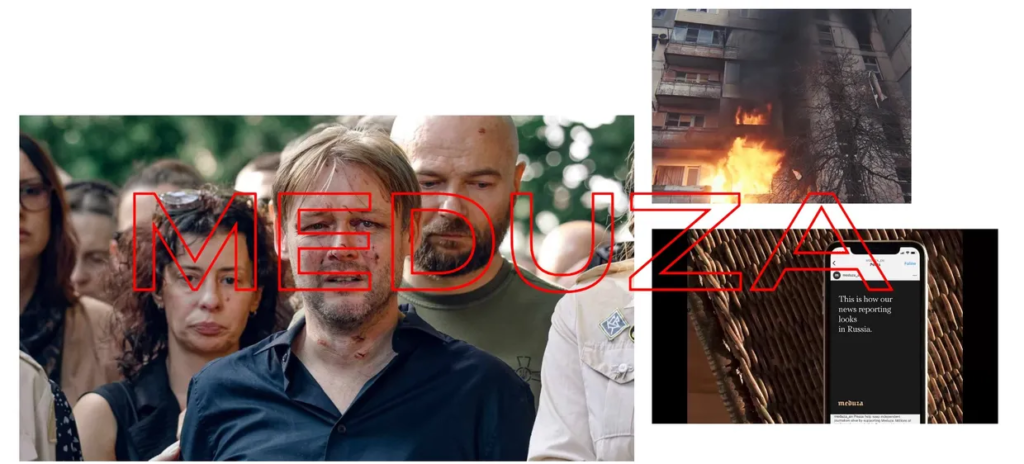The Power of Information in the War, From Meduza’s Apology to Canada’s Foreign Interference Commission
By: Valeriia Gusieva
In an era where information is both a weapon and a tool, the recent controversy surrounding Meduza—an independent Russian news outlet in exile—highlights the delicate balance between activism, advocacy, and the potential for disinformation. Meduza has long focused on providing verified, unbiased news from Russia and the former Soviet Union.
However, in 2025, its advertising campaign—designed to raise international awareness and support its crowdfunding efforts amid severe financial challenges—has sparked backlash, particularly regarding the use of images of Ukrainian civilians who suffered as a result of Russia’s full-scale invasion. The campaign developed pro bono by the Berlin-based agency Lure, aimed to highlight the Kremlin’s efforts to silence independent journalism and raise awareness of Meduza’s financial plight.

At the heart of this campaign were images from Ukraine’s war, showcasing the human toll of the invasion. The campaign used a photo of Roman Bazylevych, whose family—his 7-year-old daughter Emilia, 18-year-old Daryna, 21-year-old Yaryna, and his wife Yevhenia, 43 – were all killed while making their way to a bomb shelter. The campaign immediately faced backlash from the Ukrainian community, claiming that Ukrainian suffering was being exploited as a fundraising tool for the Russians responsible for the suffering in the first place. As a result of the growing pressure, Meduza and Lure decided to halt the campaign, and Meduza issued a statement of apology.
The incident highlights the growing role of information as both a tool and a weapon in this conflict. While Russian propaganda has been a central element in the Kremlin’s efforts to shape the narrative, even independent outlets like Meduza face significant challenges in covering the ongoing war in an unbiased manner. In their attempt to address Ukrainian suffering, they overlooked the importance of amplifying Ukrainian voices directly, which weakened their effort and missed an opportunity to properly center the perspectives of those most affected by the conflict.
Beyond its impact on the Ukrainian community worldwide, this incident has broader implications for how disinformation and media manipulation influence global discourse. In Canada, for example, the Ukrainian-Canadian diaspora has raised significant concerns about foreign interference and the spread of misinformation across media and social networks. The recent findings from Canada’s Commission on Foreign Interference have intensified debates about the role of external actors, like Russia, in undermining the integrity of democratic processes. Ihor Michalchyshyn, CEO and Executive Director of the Ukrainian Canadian Congress, expressed disappointment with the commission’s final report, stating that while Russia’s threat to Canadian democracy was acknowledged, none of the recommendations would effectively address or deter these activities.
In conclusion, the Meduza campaign highlights the challenges of balancing advocacy and ethical journalism in a media landscape shaped by increasing trends of disinformation. While intended to raise awareness, the campaign’s use of Ukrainian suffering sparked concerns about exploitation and misrepresentation. This incident reflects broader issues of media manipulation and foreign influence. Moreover, it reflects wider concerns about the role of disinformation and foreign influence in shaping global discourse, particularly in democratic countries like Canada. As the Ukrainian-Canadian community has pointed out, ensuring the integrity of media and safeguarding against external manipulation requires ongoing scrutiny and a careful approach to how narratives are constructed and communicated.